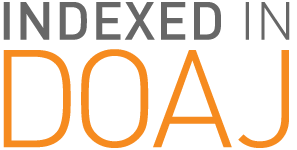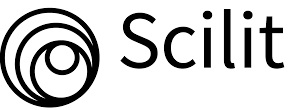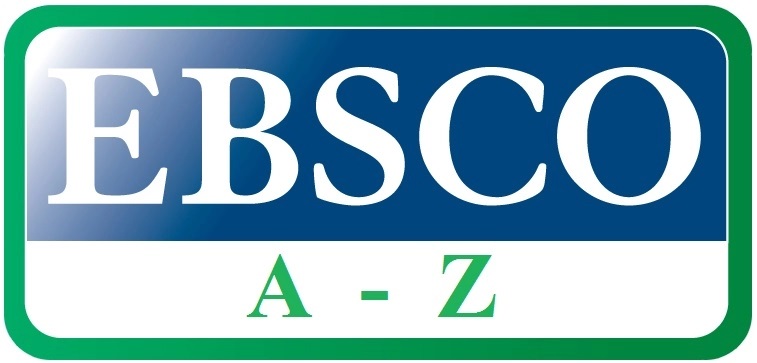(based on Elsevier's Policies and Ethics and COPE Best Practice Guidelines for Journal Editors)
Code of Conduct For Editor
- Fair Play:
- An editor at any time evaluate manuscripts for their intellectual content without regard to race, gender, sexual orientation, religious belief, ethnic origin, citizenship, or political philosophy of the authors.
- Confidentiality:
- The editor and any editorial staff must not disclose any information about a submitted manuscript to anyone other than the corresponding author, reviewers, potential reviewers, other editorial advisers, and the publisher, as appropriate.
- Disclosure and Conflicts of Interest:
- Unpublished materials disclosed in a submitted manuscript must not be used in an editor's own research without the express written consent of the author.
- Publication Decisions:
- The editor board journal are responsible for deciding which of the articles submitted to the journal should be published. The validation of the work in question and its importance to researchers and readers must always drive such decisions. The editors may be guided by the policies of the journal's editorial board and constrained by such legal requirements as shall then be in force regarding libel, copyright infringement and plagiarism. The editors may confer with other editors or reviewers in making this decision.
- Review of Manuscripts:
- Editor must ensure that each manuscript is initially evaluated by the editor for originality. The editor should organize and use peer review fairly and wisely. Editors should explain their peer review processes in the information for authors and also indicate which parts of the journal are peer reviewed. Editor should use appropriate peer reviewers for papers that are considered for publication by selecting people with sufficient expertise and avoiding those with conflicts of interest.
Code of Conduct For Reviewer
- Contribution to Editorial Decisions:
Peer review assists the editor in making editorial decisions and through the editorial communications with the author may also assist the author in improving the paper. - Promptness:
- Any selected referee who feels unqualified to review the research reported in a manuscript or knows that its prompt review will be impossible should notify the editor and excuse himself from the review process
- Standards of Objectivity:
- Reviews should be conducted objectively. Personal criticism of the author is inappropriate. Referees should express their views clearly with supporting arguments.
- Confidentiality:
- Any manuscripts received for review must be treated as confidential documents. They must not be shown to or discussed with others except as authorized by the editor.
- Disclosure and Conflict of Interest:
- Privileged information or ideas obtained through peer review must be kept confidential and not used for personal advantage. Reviewers should not consider manuscripts in which they have conflicts of interest resulting from competitive, collaborative, or other relationships or connections with any of the authors, companies, or institutions connected to the papers.
- Acknowledgement of Sources:
- Reviewers should identify relevant published work that has not been cited by the authors. Any statement that an observation, derivation, or argument had been previously reported should be accompanied by the relevant citation. A reviewer should also call to the editor's attention any substantial similarity or overlap between the manuscript under consideration and any other published paper of which they have personal knowledge.
Code of Conduct For Authors
- Reporting Standars:
Authors of reports of original research should present an accurate account of the work performed as well as an objective discussion of its significance. Underlying data should be represented accurately in the paper. A paper should contain sufficient detail and references to permit others to replicate the work. Fraudulent or knowingly inaccurate statements constitute unethical behaviour and are unacceptable. - Data Access and Retention:
Authors are asked to provide the raw data in connection with a paper for editorial review, and should be prepared to provide public access to such data (consistent with the ALPSP-STM Statement on Data and Databases), if practicable, and should in any event be prepared to retain such data for a reasonable time after publication. - Originality and Plagiarism: The authors should ensure that they have written entirely original works. If the authors have used the work and /or words of others then it has to be appropriately cited or quoted. Plagiarism takes many forms, from 'passing off' another's paper as the author's own paper, to copying or paraphrasing substantial parts of another's paper (without attribution),and / or to claiming results from research conducted by others. Plagiarism in all its forms constitutes unethical publishing behaviour and is unacceptable.
- Multiple, Redundant or Concurrent Publication:
An author should not in general publish manuscripts describing essentially the same research in more than one journal or primary publication. Submitting the same manuscript to more than one journal concurrently constitutes unethical publishing behaviour and is unacceptable. - Acknowledgement of Sources:
Proper acknowledgment of the work of others must always be given. Authors should cite publications that have been influential in determining the nature of the reported work. - Authorship of the Paper:
Authorship should be limited to those who have made a significant contribution to the conception, design, execution, or interpretation of the reported study. All those who have made significant contributions should be listed as co-authors. Where there are others who have participated in certain substantive aspects of the research project, they should be acknowledged or listed as contributors. The corresponding author should ensure that all appropriate co-authors and no inappropriate co-authors are included on the paper, and that all co-authors have seen and approved the final version of the paper and have agreed to its submission for publication. - Disclosure and Conflicts of Interest:
All authors should disclose in their manuscript any financial or other substantive conflict of interest that might be construed to influence the results or interpretation of their manuscript. All sources of financial support for the project should be disclosed. - Fundamental errors in published works:
When an author discovers a significant error or inaccuracy in his/her own published work, it is the author’s obligation to promptly notify the journal editor or publisher and cooperate with the editor to retract or correct the paper. - Hazards and Human or Animal Subjects:
If the work involves chemicals, procedures or equipment that have any unusual hazards inherent in their use, the author must clearly identify these in the manuscript.
Screening for Plagiarism
The manuscript that submitted into this journal will be screened for plagiarism using Turnitin
=========Indonesian Language (Bahasa)===========
Kode Etik Untuk Redaktur
- Berkewajiban membuat panduan penulisan bagi penulis beserta template-nya.
- Memastikan proses penelaahan karya tulis/artikel dilaksanakan secara menyeluruh, transparan, dan objektif.
- Menjamin kelayakan mitra bestari yang dipilih sesuai dengan kompetensi yang dimilikinya dan tidak memiliki konflik kepentingan.
- Menjamin bahwa semua karya tulis/artikel yang diterbitkan telah melalui proses telaah oleh mitra bestari yang berkualifikasi.
- Karya tulis/artikel yang sudah disetujui oleh dewan redaksi untuk diterbitkan akan melalui proses persetujuan penulis sebelum diterbitkan secara on line.
Kode Etik Untuk Mitra Bebestari
- Mempunyai tugas membantu redaktur dalam menentukan karya tulis yang dapat diterbitkan dan membantu penulis untuk meningkatkan kualitas karya tulis/artikelnya.
- Dituntut bersikap jujur, objektif, tidak bias, independen, dan hanya berpihak pada kebenaran ilmiah serta bersifat rahasia tanpa diketahui oleh penulis.
- Hasil penelaahan karya tulis/artikel disampaikan secara jujur, objektif dan didukung oleh argumentasi yang jelas.
- Tidak memanfaatkan karya tulis yang ditelaah untuk kepentingan pribadi tidak boleh disebarluaskan.
- Hasil penelaahan mengikuti format yang diberikan oleh Redaktur Jurnal dan mengisi surat pernyataan neutralitas dalam proses penelaahan.
Kode Etik Untuk Penulis
- Mengisi surat pernyataan bahwa karya tulis/artikel yang diserahkan untuk diterbitkan adalah asli, belum pernah dipublikasikan di manapun dalam bahasa apapun, dan tidak sedang dalam proses pengajuan ke penerbit lain serta tidak terlibat dalam plagiarisme atau plagiarisme-diri, dan publikasi salami sangat dilarang
- Jika ada kesalahan dalam karya tulis, pengarang segera memberitahukan kepada redaksi atau penerbit.
- Bertanggungjawab secara kolektif untuk pekerjaan dan isi artikel yang meliputi metode, analisis, perhitungan dan rinciannya.
- Apabila diminta, penulis wajib menyiapkan bukti apapun yang berlandaskan kajian ilmiah apabila ada hal yang perlu dibuktikan dan berhubungan dengan data dan referensi.












